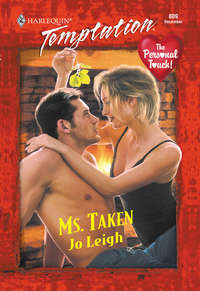
Полная версия
Confessions Bundle

Confessions Bundle
What Daddy Doesn’t Know
The Rogue’s Return
Truth or Dare
The A&E Consultant’s Secret
Her Guilty Secret
Millionaire Next Door

TORONTO • NEW YORK • LONDON
AMSTERDAM • PARIS • SYDNEY • HAMBURG
STOCKHOLM • ATHENS • TOKYO • MILAN • MADRID
PRAGUE • WARSAW • BUDAPEST • AUCKLAND
MILLS & BOON
Before you start reading, why not sign up?
Thank you for downloading this Mills & Boon book. If you want to hear about exclusive discounts, special offers and competitions, sign up to our email newsletter today!
SIGN ME UP!
Or simply visit
signup.millsandboon.co.uk
Mills & Boon emails are completely free to receive and you can unsubscribe at any time via the link in any email we send you.
Table of Contents
What Daddy Doesn’t Know
By Tara Taylor Quinn
The Rogue’s Return
By Margaret Moore
Truth or Dare
By Jo Leigh
The A&E Consultant’s Secret
By Lilian Darcy
Her Guilty Secret
By Anne Mather
Millionaire Next Door
By Kara Lennox
What Daddy Doesn’t Know
By Tara Taylor Quinn

TORONTO • NEW YORK • LONDON
AMSTERDAM • PARIS • SYDNEY • HAMBURG
STOCKHOLM • ATHENS • TOKYO • MILAN • MADRID
PRAGUE • WARSAW • BUDAPEST • AUCKLAND
CONTENTS
CHAPTER ONE
CHAPTER TWO
CHAPTER THREE
CHAPTER FOUR
CHAPTER FIVE
CHAPTER SIX
CHAPTER SEVEN
CHAPTER EIGHT
CHAPTER NINE
CHAPTER TEN
CHAPTER ELEVEN
CHAPTER TWELVE
CHAPTER THIRTEEN
CHAPTER FOURTEEN
CHAPTER FIFTEEN
CHAPTER SIXTEEN
CHAPTER SEVENTEEN
CHAPTER EIGHTEEN
CHAPTER NINETEEN
CHAPTER TWENTY
CHAPTER ONE
“MS. MCNEIL, your daughter spit at her teacher. We don’t tolerate things like that at Tyler Elementary.”
After one quick exchange of glances with her eight-year-old daughter, Juliet McNeil understood that Mary Jane’s story was different from the principal’s. She fought the feeling of dread seeping through her. If Mrs. Cummings kicked Mary Jane out, Juliet’s child would be facing the fourth new school in her brief, three-year educational career.
“Mary Jane will apologize to her teacher,” she said for the third time that Friday morning. “And she and I will speak more about this when we get home.”
The woman leaned forward, not a strand of her clearly dyed reddish-brown hair moving out of place. Probably didn’t dare to. “I hesitate to say this in front of the child, Ms. McNeil…”
Juliet looked at the raised face of her simple but elegant gold watch, trying to distract herself from the panic that threatened to make her sound harsher than she intended.
“Anything you have to say to me regarding Mary Jane can be said in front of her,” she said calmly. That calm was hard to come by when what she wanted to do was yell. Or cry. “I try not to hide things from my daughter and it seems to work well for us.”
Mary Jane had only been in this San Diego public school since the January semester change, and after two months the writing was already on the wall. The child was too intelligent for her own good, a free spirit, too outspoken—all of which made it hard for her to fit in with other kids her age.
She also had a father who didn’t know she existed.
“Yes, well, then.” The principal turned from Juliet to the fine-boned child sitting in a vinyl chair next to her mother, her skinny legs, mostly covered by an ankle-length denim skirt, sticking straight out in front of her. Mary Jane, her hands folded across her stomach and her short dark hair a riot of curls framing her cherub cheeks, looked the epitome of innocence. And in Juliet’s opinion, that was exactly what she was.
“The thing is, Ms. McNeil,” the woman started again a full thirty seconds later, “I’m not so sure these talks you have with your child are doing much good. Nor do I think a simple apology will do it this time.”
“Spitting was wrong, I agree,” Juliet said in a conciliatory tone. As a private defense attorney, she’d had a lot of experience reading jurors’ faces. Mrs. Cummings had already made up her mind on this one. Juliet brushed an auburn curl over her shoulder and continued anyway. “It’s also not something Mary Jane has ever done before. I wonder, has anyone asked her about the incident?”
The older woman, her forehead creased in a clear expression of impatience, said, “Yes, I have the complete report from Mrs. Thacker.”
“What reason did Mary Jane give for spitting at her teacher?”
A heavy sigh came from the seat next to Juliet. Her daughter’s ankle-length black boots bobbed. Juliet didn’t dare look over. She couldn’t afford the distraction.
She also didn’t have time to find another school right now.
But even without that look of confirmation from her daughter earlier, Juliet couldn’t believe Mary Jane would really do such a thing. Drop something and break it, spill something, trip over something, probably. But spit at her teacher? The child was never deliberately mean.
“She spit on her teacher!” Mrs. Cummings said. “I really think the reason is irrelevant.”
“Maybe.”
Mary Jane could take the truth, but she was still a child. Her feelings could be hurt by thoughtless adults passing judgment without knowledge or understanding.
“Do you mind if we just ask her?” The whisper brush of hose against hose as Juliet crossed one ankle over the other sounded loud. “The first amendment to the Constitution of this country states that everyone has a right to a trial.”
Her hands locked on the top of her desk, Mrs. Cummings didn’t move. Though her smile was rather ghostly, it remained in place as she studied Juliet. Then, slowly, she turned her gaze to the little girl whose wide-eyed look almost lost her mother the ground she’d just won.
“Okay, Mary Jane, can you tell me why you spit on Mrs. Thacker?”
“I didn’t actually spit on her.” Mary Jane’s voice, though somewhat subdued as she stared her principal in the eye, was her usual peculiar combination of childhood lisp and adultlike delivery.
Mrs. Cummings sat up straighter, her lips pinched with disapproval. “We have witnesses, several of them.”
“I did spit and it did get on her,” Mary Jane explained, eyes sincere. “I just didn’t mean it to get on her. She walked around the corner and I couldn’t make it stop coming out.”
God, Juliet loved this child. “Why did you spit at all?” she asked.
Mary Jane glanced down, moving her boots back and forth against each other. “Jeff Turner said that I was backward because there were lots of things I don’t know how to do ’cause I don’t have a dad to teach me.”
She and Mary Jane were happy together. Why couldn’t the world just let them be?
“Things like spitting?” Juliet asked.
Mary Jane nodded. “So I told him I could too spit, as good as anyone with a dad. And he told me to prove it, so that’s what I was doing when Mrs. Thacker came to call us in from recess.”
Trying not to smile at that image, or to think about the hurtful things kids did to each other, Juliet looked back at the principal. And waited. This was her call.
“The point is—” Mrs. Cummings, hands together, leaned toward Juliet “—that your daughter, whether she meant to or not, spit on her teacher in front of all the other children. We can’t just ignore that fact. Maintaining the discipline required to prevent mayhem with six hundred students all in one building for six hours every day takes diligence and carefully protected boundaries.”
“I understand, but—”
“I was quite willing to sign the necessary forms to allow Mary Jane to attend this institution even though she lives outside our boundaries, but she has not lived up to her side of the agreement. I’m going to—”
She couldn’t bear to see Mary Jane become the outsider again as a new kid in yet another school. “Please, Mrs. Cummings.” Juliet sat forward. She’d beg if she had to. She was just beginning jury selection on the biggest trial of her career—opposing Paul Schuster, a prosecutor who put far much more value on winning than on truth.
“She’s explained that the spitting wasn’t intentional,” Juliet said quietly.
The frown on the principal’s plain face was not encouraging. Even if Juliet won this one, they lost. She couldn’t feel good about sending Mary Jane to a school that didn’t want her.
The child was uncharacteristically still beside her as Mrs. Cummings sat back, eyes lowered. Silent.
There was a time to speak, and a time to let the facts speak for themselves. Watching her imp of a daughter sitting so solemnly beside her, chin sliding lower on her chest as the seconds passed, Juliet willed the facts to speak quickly.
“I don’t know how I could explain this to a classroom full of third-graders.” The principal finally looked up, her gaze pinned on Juliet. “If I let Mary Jane back into class, they’re going to think that what she did was okay.”
“I don’t work with kids all day long like you do,” Juliet said, “but it seems to me that they’ll think what you tell them to think. Couldn’t this be a lesson in how things are not always what they seem? Or an example of how telling the truth can get you out of trouble?”
“Spitting at all is against school rules.”
Filling with desperation, Juliet spoke urgently. “I know, ma’am, and I’m sure no one’s sorrier than Mary Jane. But spitting on the playground can’t be a reason for expulsion, can it?”
“No,” Mrs. Cummings said, eyebrows raised. “Not by itself. But this isn’t Mary Jane’s first infraction.” She looked over at the girl. “And I’m sorry Jeff Turner was bothering you. I’ll have another talk with his father, but I just don’t see how I can overlook the fact that you’re in this office more frequently than anyone else in your class.”
Juliet leaned forward. “The other incidents are in the past,” she said, finding it difficult to breathe around the tightness in her chest. “Mary Jane accepted her punishment and made all necessary reparations. All we have on the table today is spitting and, judging by your own words, that’s not punishable by expulsion.”
The principal sat for a long time, and then her face softened slightly. “All right, I’ll give her one more chance. But if there’s a next time…”
Thank you, God. Juliet didn’t hear the rest of the warning. The bottom line was that Mary Jane couldn’t make any more mistakes.
“But you’re going to have to stay after school for a week, young lady, and clean Mrs. Thacker’s blackboards for her as punishment.”
“Yes, ma’am.”
“And apologize to her in front of your classmates.”
“Yes, ma’am.”
With that, Mrs. Cummings nodded.
Juliet gave her daughter a hug and a whispered “I love you,” and hurried back to her office at Truman and Associates, one of the city’s leading law firms. They’d had a narrow escape.
“MR. RAMSDEN, I’m Paul Schuster. Thank you for seeing me.”
Blake took the older man’s hand, was surprised by his weak grip, and indicated one of the two lush navy leather chairs in front of his desk.
“It’s not often I get a call from an assistant attorney general,” he said, curious. He’d read about Schuster; the man was one of the state’s “winningest” prosecutors, according to the papers.
There were some who said innocent people were rotting away in prison because of that.
“As a matter of fact,” Blake added, taking the man’s business card, “this is a first.”
“It’s the first time I’ve been in the Ramsden Building, too,” Schuster said, lifting the back of his black-and-white tweed jacket as he set down his soft-sided leather briefcase and sat. “Like everyone else in San Diego, I’ve driven by it countless times.”
Blake nodded. The building was one of the first things he’d done after his return to the States—and the family business—five years before. One thing he’d learned during his four-year sojourn abroad was that image was everything. Show them you’re big and impressive, and you will be. He’d also gained an almost spiritual appreciation for the artistry of the architecture he’d spent five years in college analyzing.
“It’s as interesting inside as it is out. The spirals and columns are fascinating,” the prosecutor added.
“You’ve never been to Barcelona, I take it?”
Schuster’s frown held more question than anything. “No, why?”
“They’re based on the Sagrada Familia, a famous Gaudi church.” He could bore the man with all the other architectural details represented in the new home of Ramsden Enterprises, one of the state’s oldest and most elite custom-home builders—and now its leading commercial builder as well—but he wouldn’t. “Gaudi was an innovator, part of the art nouveau movement. He created fairy tales out of rubbish. And this particular project is one he never finished.”
To his credit, Schuster appeared interested.
Rocking back in his chair, Blake placed his hands on his thighs. After five years, he still wasn’t used to the creased dress slacks he wore.
“You’re a busy man, Schuster. I’m sure you didn’t come here to discuss architecture. Unless you’re in the market for a new one-of-a-kind home?”
“What do you know about the Terracotta Foundation?”
“Only what I’ve read in the papers. It’s a privately owned and administered foundation whose alleged purpose is to raise funds, through investments and donations, and disperse them to third-world countries.”
“How about Semaphor?”
Resisting the urge to adopt a less relaxed position, Blake said, “It’s a nonprofit organization that raises public awareness of charitable foundations.”
“Your father was on the board.”
Blake knew that. The open position had been offered to Blake five years before, when he’d flown home in shock to take up the reins of the family business.
“Is there a problem here?” he asked as he leaned forward, putting his feet firmly on the floor and resting his forearms on the edge of his desk. The glass was cool on the skin left bare by the rolled-up sleeves of his dress shirt.
Schuster shook his graying head. “Not with you, no.” The pockmarks on the man’s face gave a hint of fierceness to his serious expression.
“And not with my father, either.” Of that Blake was certain. Walter Ramsden might have been obsessive, inflexible, and impossible to live with, but he had been as honest as they came. In all his dealings.
“How well do you know Eaton James?”
CEO of Terracotta Industries, which owned the Terracotta Foundation. “Well enough.”
Schuster raised one eyebrow. Blake looked away and stared out the twelfth-floor wall of windows that flanked the west side of his office, giving him a view that—if all civilization were wiped away—would take him straight to the ocean. Having it so close, that vast place of mystery and life, somehow calmed him.
“The man tried to swindle my father.” Blake gave Schuster dates. Times. Quotes from an investment agreement. Accounts. “That’s what I mean by well enough.”
“Are you willing to testify to this?”
Of course. If he had to. The one thing that held steady in his life was his compulsion to tell the truth. To tell it and to live it. But he didn’t relish showing his late father for the fool he’d apparently been in that incident, particularly since it was the only time in the man’s entire life that he’d been led by sentiment rather than logic.
“I have a paper trail outlining a series of investment frauds that, with your validation, could nail James to the wall,” Schuster said. “Without your testimony—the explanation that will tie all the paper evidence together—he could walk.”
“When do you need me in court?”
“YOU SURE LOOK gloomy.”
Leaning her head against the back of the seat, Mary Jane nodded.
“Was it rough, apologizing in front of everyone?”
“Nah.” She hadn’t cared. She was sorry she’d spit on Mrs. Thacker.
“Then what?”
“I just wish I didn’t have to go to any dumb school.”
What she wished was that she could stay home where Mom always knew what she meant, knew that she wouldn’t do bad things on purpose, and didn’t think it was weird that she didn’t know her dad.
She wished she’d never told that to dumb Jeff Turner anyway. But he’d made her really mad when he’d said her dad didn’t want her because her hair was so curly and she said weird stuff.
At least she hadn’t told Jeff that her dad didn’t know her, either—didn’t even know about her.
“School’s not dumb, Mary Jane. You’re a very smart little girl, but if you don’t learn facts and information, that intelligence isn’t going to do you a lot of good.”
“You could teach me at home.”
“Honey, you know I have to work.”
“Well, I can stay home alone and teach myself.”
“Did someone say something mean to you after I left?”
Thank goodness it had been yesterday when Jeff had said her dad didn’t want her. Because she couldn’t lie to her mom, and she didn’t want to tell her what he’d said.
“No.”
What if the thing Jeff said was true? What if her father didn’t want her?
“You sure?” Mom’s face was all soft and kind of smiling when she looked over at Mary Jane.
She nodded. And looked out the window for a while, thinking about her dad. Mom had told her a long time ago who he was. Her mom didn’t keep it a secret, because her grandma had kept secrets from Mom and Aunt Marcie that had turned out to hurt them a lot.
That big building downtown was her dad’s. And she was glad he didn’t know about her. If a man came to live with them, it would just mess up the best life she’d ever had. Still…
“Do you think Blake Ramsden woulda wanted me if you’d told him I was born?”
“He wasn’t anywhere where I could have told him,” Mom said. “You know that.”
“But when he did get somewhere, do you think he woulda wanted me?”
Mom was quiet for a while and that scared Mary Jane. If Jeff Turner was right about this, was he right about the other dumb stuff he said, too? Did everyone really hate Mary Jane and laugh at her behind her back because she mostly got all the answers?
Did they say they didn’t want to be her friend?
“I believe that if he knew you, he’d love you as much as I do,” Mom finally said.
That was good. “But would he want me?”
“I can’t speak for him, sweetie,” Mom said. “But I don’t see how he couldn’t want you. I’ve told you before that I would contact him for you if you wanted me to,” she added. “Would that help?”
“No!”
The trees were going by really fast and it made her a little dizzy, staring out at them. She liked them though. They were too big to be hurt by just about anything, ’cept lightning, and they helped you breathe.
“Did you want me?” She’d hadn’t planned to ask that.
Mom pulled into their street and into their carport and stopped the car, but she didn’t open her door. Mary Jane didn’t either.
“Why all the questions about being wanted?” Mom asked, frowning a little.
She shrugged. A shrug wasn’t a lie.
“When I first found out I was pregnant with you, I was scared to death.” That was something Mary Jane had never heard before. She stared at her mom.
“You were?” She’d never seen Mom scared of anything. Usually she made the scary stuff better.
“Uh-huh.”
“Scared of me, a little baby? How come?”
Mom’s fingers pushed curls off Mary Jane’s forehead. She liked it when Mom did that.
“I wasn’t afraid of you. I was afraid that I wouldn’t be able to take care of you. I was alone and not even a real lawyer yet because I hadn’t taken the bar exam. I had no idea how I’d support us.”
Oh. That kind of stuff. “But you did.”
Mom smiled. “Yes, I did.”
“So then did you want me?”
“Very much.”
That was enough. But Mary Jane liked talking about this. It made her feel good. Like she really was special and not a loser like Jeff Turner said.
“When did you first know you wanted me?” she asked, still sitting with her seat belt on even though she was getting pretty hungry.
Mom had kind of a faraway look, and Mary Jane knew she was remembering. She wished she could remember, too.
“I always wanted you,” she said, her voice soft like she was telling a dream. “But the first time I knew you were going to be more important to me than anything else in my life was the first time I felt you move.”
“In your stomach?”
“Yep.”
Mary Jane grinned. “What did it feel like?”
“Like a tiny little butterfly fluttering its wings.”
That wasn’t so bad. She wasn’t ever going to have babies herself. That would be too gross.
But she was sure glad Mom had.
CHAPTER TWO
“MY PAWN TO your king,” Blake muttered to himself. Still in the gray suit and coordinating gray, black-and-white tie he’d worn to the office that day, he stood at the computer in his glass-walled home office the last Wednesday night in March. He pushed a couple of keys, hit Enter, took one final look at the game on the screen, and left the room. His opponent, a man he’d met in Kashmir, India, several years before, would be at least an hour figuring his way out of that one.
He had guests coming for dinner, Donkor and Jamila Rahman. A Christian father and daughter he’d lived with for a while in Egypt—before his marriage to Jamila’s closest friend.
After checking the last-minute details on the dinner his housekeeper had prepared for him that afternoon, Blake moved from the kitchen, with its shiny black appliances, granite countertops and double oven, to the side of his house that didn’t overlook the ocean. In contrast to the western side, these rooms didn’t have windows. The house was built into the side of a cliff in the quaint village of La Jolla.
The east side was where he’d put his treasure room—a museum with track lighting, built-in shelves and marble tables that housed all the artifacts and souvenirs of his travels. It was also where he housed his wine cellar.
The cellar—more of a wall-size wine closet—had been his wife’s idea.
A woman who’d been orphaned young, Amunet had grown up half Egyptian, half French and later, a New Yorker. She’d been visiting Egypt when Blake was there helping to rebuild a small village that had been hit hard by weather and poverty. Donkor, a man of means and a charitable heart, had been the largest donor and overseer of the project.
Blake chose the wine, checking the year, although he knew there was not one bottle in the house that wasn’t worthy of a fine restaurant.
Donkor and Jamila had been the only “family” present at the urban Egyptian wedding Amunet had wanted. From the car parade with all the flowers and ribbons and honking of horns, through the ancient tradition of the Zaffa, a human parade of belly dancers and drummers singing to them, to the Kosha, two bedecked seats in front of the waiting guests where he and Amunet had exchanged rings, his lovely bride had been in her element. Surrounded by noise, excitement, beauty, dancing and activity, and enough people to distract her from anything that might have been missing.









